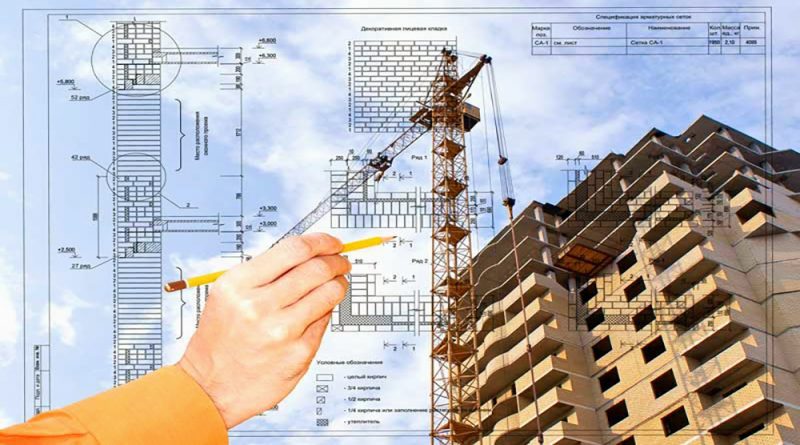6 Reasons Why Construction Companies Fail
By: Kendall Jones
Running a successful construction company
isn’t easy. The industry is full of risks and challenges that can lead to
failure. According to data from the Bureau of Labor Statistics, of the 69,296
private construction firms that started operation in 2001, 56% were still
around three years later, 26.6% made it to year 10, and only 17.2% were still
in operation 20 years later. That’s a failure rate of nearly 82.8%. Let that
sink in for a bit.
There are literally hundreds of reasons why
construction companies fail and have to close up shop. When construction
companies fail, it’s typically not caused by a single issue. In most cases,
there are a number of contributing factors and missteps that led to their
failure. While outside factors can play a role, just look at the Great
Recession, most companies fail from within.
Here’s a look at some of the common root
causes that lead to construction companies going out of business.

Capital & Cash Flow
Construction companies are capital intensive
businesses, large amounts of capital are invested in fixed assets like tools,
heavy equipment, and vehicles. Not maintaining an adequate level of capital has
led to the failure of many a construction company. Not having enough capital to
get your company through lean times or to overcome unexpected surprises is a
huge risk.
Overleveraging, tying up working capital
and cash in ongoing projects, and overinvesting in fixed assets that are
underutilized are some common reasons firms will dip into their rainy day
reserves and deplete all available capital. Without that buffer, construction
companies face failure when an unexpected need for capital surprises them.
Cash flow management is another major area
of concern that can lead to failure for a construction company. Cash flow, the
amount of cash coming in and going out, needs to be properly managed to ensure
your business’s success. This means making sure you are billing for projects
and getting paid in a timely manner, keeping your accounts payable and
receivable in check, and properly managing project budgets.
Maintaining a positive cash flow allows you
to pay debts and expenses, reinvest in your business, and maintain a buffer for
emergencies. When cash flow slows to a trickle or if you have more money going
out than coming in it can quickly lead to failure.
Project Performance
A single bad project doesn’t typically
sound the death knell for a construction company, but it has been known to
happen. String together a handful of bad projects that lose money and your
business could be in serious trouble.
Ensuring you deliver profitable projects
starts long before signing contracts and commencing construction. Picking
projects that are the right fit for your business and going through a
bid/no-bid decision-making process should be your first step. Doing your due
diligence when estimating and job costing can help you avoid taking on work
that won’t be profitable.
Once you selected a project that is
manageable and profitable for your business, it’s time to plan out the work to
successfully complete the project on time and within budget. This means having
the right leadership, workforce, and equipment available to perform the work.
Failure to properly manage and deliver projects can result in losses or
razor-thin margins—not exactly a sustainable business model.
Failure to Plan
A strategic business plan is key to running
a successful construction business. A good business plan means developing
specific goals and objectives that are attainable and manageable. Your business
plan should include defining leadership roles, growth strategies, succession
planning, and defining a company culture.
Define your company’s core competencies and
stick to them. This doesn’t mean you shouldn’t grow or expand your business,
but it should be carefully mapped out, so you don’t get overextended or veer
too far off the path of what makes your company successful.
Be sure to communicate your goals and
objectives to your entire staff. If your workforce doesn’t know where you plan
to be in the next year, or the next five years, they won’t be able to help you
get there.

Growing Too Fast
It may seem crazy to think that trying to
grow your construction business can lead to going out of business. Problems
arise when a company tries to grow too fast without having the resources,
manpower, and know-how to execute that growth successfully.
Taking on too much work, trying to tackle
larger projects, expanding into new geographic areas or new building types are
all ways you can grow your business. Complications arise when you don’t
properly research and plan ahead and instead rush headlong and willy-nilly into
unfamiliar territory.
Be strategic and methodical in your plans
for expansion. If you want to take on larger projects, do it incrementally.
Don’t try to jump from doing $100,000 projects to $10,000,000 overnight. If you
want to expand into new geographic regions or new building types, start with
one or two and then, once you’ve successfully completed those, start building
your backlog from there.
The Wrong People
A successful construction company is only
as good as its people. From your executive leadership team down, you should
make sure you have the right people on board to ensure your company’s success.
If your employees aren’t engaged and valued, they aren’t going to feel motivated
to give you their best effort.
Turnover in the construction industry is
high, so it’s important that you recruit and retain the best workforce you can.
This means becoming an employer of choice by offering competitive salaries and
benefits, providing on-the-job training for all employees, promoting your best
workers from within your organization, and building a company culture that is
focused on keeping employees happy and engaged.
Failure to Innovate
Failing to innovate and adapt to
technological changes have been the downfall of many successful businesses over
the years. Blockbuster, Eastman Kodak, General Motors, Compaq, Toys “R” Us,
Blackberry, and most recently, Sears are all companies that went bankrupt or
ceased operations in part because they failed to innovate and adapt quickly
enough to survive.
The construction industry is in the midst
of a digital transformation that will inevitably lead to the demise of
construction companies that refuse to adapt. Technology from drones and robots
to Building Information Modeling (BIM) and big data are rapidly changing how
the construction designs and builds structures.
The latest report from JBKnowledge, Inc.
shows that only 43.2% of construction companies surveyed have a dedicated
research and development budget and that 46% of companies spend less than 1% of
their annual sales volume on IT. Continuing to underinvest in technology and
refusing to innovate is going to be detrimental to construction companies
moving forward.
As the complexity of construction projects
increases, companies that are innovating and incorporating these new
technologies and digital tools into their businesses are setting themselves up
for continued success in the future. Those that refuse to innovate and continue
to operate the same way the always have are going to struggle to keep pace with
those that embracing this technological transformation.











